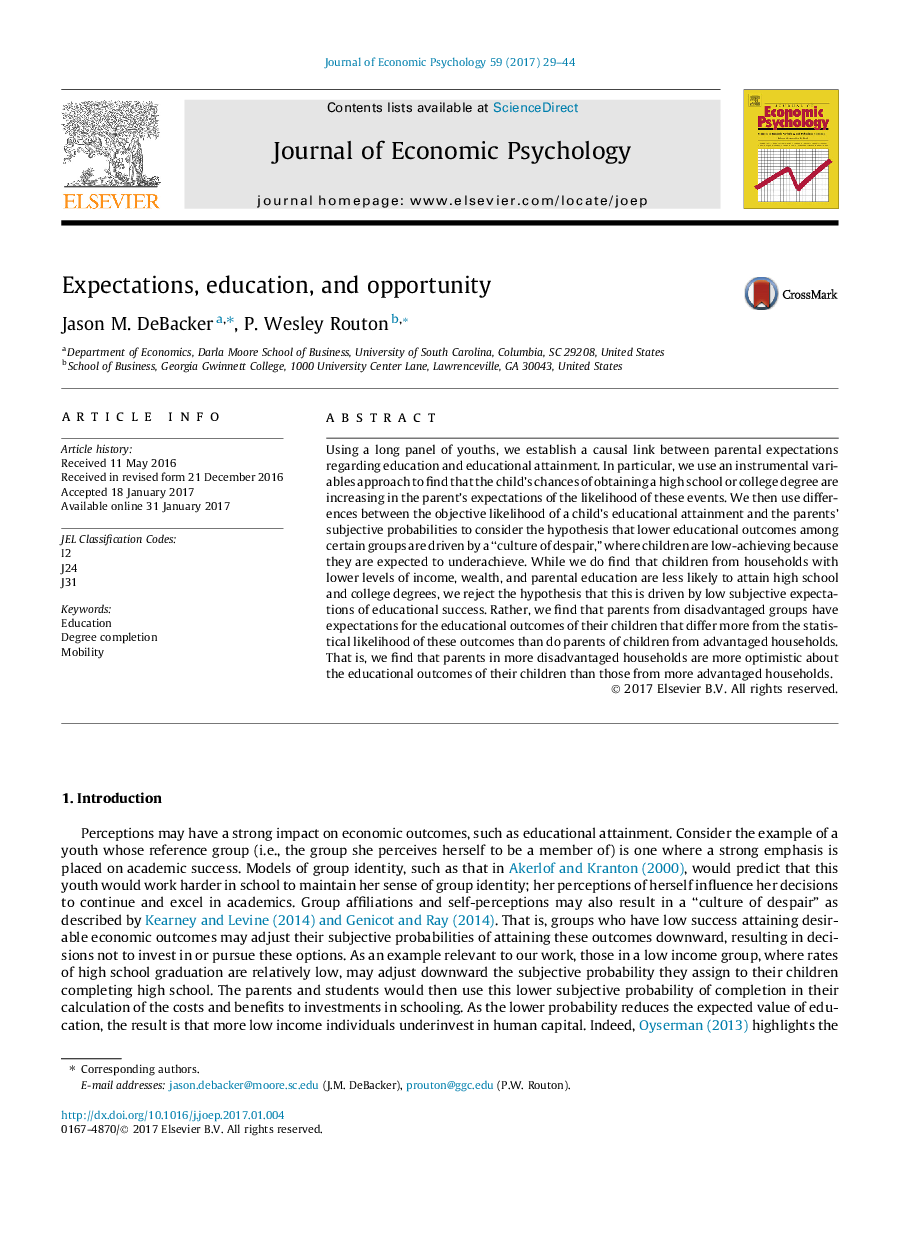| Article ID | Journal | Published Year | Pages | File Type |
|---|---|---|---|---|
| 5034787 | Journal of Economic Psychology | 2017 | 16 Pages |
Abstract
Using a long panel of youths, we establish a causal link between parental expectations regarding education and educational attainment. In particular, we use an instrumental variables approach to find that the child's chances of obtaining a high school or college degree are increasing in the parent's expectations of the likelihood of these events. We then use differences between the objective likelihood of a child's educational attainment and the parents' subjective probabilities to consider the hypothesis that lower educational outcomes among certain groups are driven by a “culture of despair,” where children are low-achieving because they are expected to underachieve. While we do find that children from households with lower levels of income, wealth, and parental education are less likely to attain high school and college degrees, we reject the hypothesis that this is driven by low subjective expectations of educational success. Rather, we find that parents from disadvantaged groups have expectations for the educational outcomes of their children that differ more from the statistical likelihood of these outcomes than do parents of children from advantaged households. That is, we find that parents in more disadvantaged households are more optimistic about the educational outcomes of their children than those from more advantaged households.
Related Topics
Social Sciences and Humanities
Business, Management and Accounting
Marketing
Authors
Jason M. DeBacker, P. Wesley Routon,
